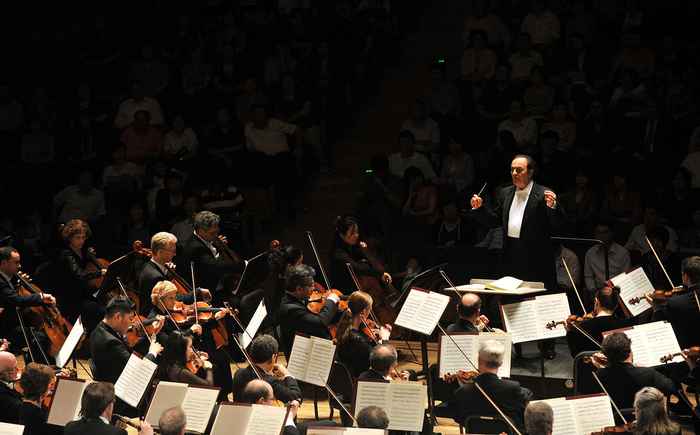And the music plays on … orchestral musicians in times of crisis
Heather Kurzbauer PhD Defence
30 May 2022

From prestigious symphony orchestras in the US to the finest orchestras in Europe, the first decade of the 21st century has brought about harsh changes in employment for orchestral musicians. PhD candidate Heather Kurzbauer: ‘At a time when the great Philadelphia Orchestra also announced its bankruptcy, things went downhill for orchestras all over the world. In Germany, for example, there was a reorganisation and merger between two famous orchestras. In the Netherlands too, drastic cuts in the wake of the financial crisis led to an unprecedented number of consolidations, closures and redundancies in the Dutch orchestral sector.’
On 1 June 2022, Heather Kurzbauer will be awarded a doctorate on the theme of employment of orchestral musicians in times of crisis, a subject that is close to her heart. As a researcher, but also as a musician – she played first violin in the Netherlands Radio Chamber Orchestra/Netherlands Radio Chamber Philharmonic – Kurzbauer is heavily involved with the orchestral world.
‘Orchestral musicians have hardly been the main focus in analyses of employment and employment law disputes. Although, with its financial instability, low wages, temporary and flexible contracts and the absence of clear guarantees in the workplace, the sector would be a prime candidate in this regard. The financial crisis and the current COVID-19 pandemic have significantly increased the uncertainties that it faces. Through my research I want to listen to this sector and look for solutions.’
It is a sector with financial instability, low wages, temporary and flexible contractsHeather Kurzbauer

The Netherlands and the US
Kurzbauer’s research focuses on two countries: the Netherlands and the United States, ‘both excellent in orchestral terms’. Kurzbauer: ‘Orchestral musicians based in these countries perform the same tasks but the organisations that employ them rely on totally different forms of support. In the Netherlands, the majority of their funding comes from grants from government and local authorities. In the US, there is little state support, and many orchestras have to rely on donations (red. patrons and corporates).’
Freelancers
Kurzbauer goes on to look at the vulnerabilities of musicians through a legal lens. An important theme in her research is the position of salaried orchestral musicians compared with their more vulnerable colleagues, freelance players. ‘Job security and social protection for these freelancers is precarious, wherever they work’, says Kurzbauer. ‘Freelancers don’t have good fringe benefits, like a pension, a ‘13th month’, instrument insurance or occupational disability insurance.’ With the introduction of the WAB (Balanced Labour Market Act) and new collective labour agreements (CAOs) for freelancers in the Netherlands, there is hope for the future, but, according to many freelancers, there is still a big discrepancy between legislation and enforcement.’
In her research, Kurzbauer analyses a number of legal cases brought by freelancer players and their attempts to get justice in labour-related disputes. For example, the FNV case brought before the European Court of Justice ‘FNV Kunsten Informatie en Media v Staat der Nederlanden’ in 2014 opened the door for the recent legal cases of Uber drivers. And in the United States, there have been recent successes for freelancers, as there have here in the Netherlands at the Netherlands Ballet Orchestra and the National Opera Ballet, thanks to the efforts of unions and the Platform for Freelance Musicians.
Job security and social protection for these freelancers is precarious, wherever they work
Prejudices
The research also focuses on another vulnerable aspect in terms of the experiences of orchestral musicians in the workplace: prejudices based on gender, race and age and #metoo concerns that affect the orchestral workplace. Kurzbauer: ‘Inappropriate behaviour is still an issue, especially for orchestral musicians, because the system is extremely hierarchical. The management and the conductors have far more control than the musicians.’
Kurzbauer hopes that her research into the labour law risks for musicians will raise awareness among musicians. ‘They should have better access to collective organisations, such as a union. I hope that economists, legislators and social policy makers will benefit from a broad understanding of a sector that is comparable to other employment sectors where freelancers work side by side with salaried employees.’
Heather Kurzbauer will be awarded a doctorate on 1 June 2022 for her thesis: 'Symphonic Metamorphoses Variations on vulnerability: orchestral musicians´ employment in times of crisis'. Her supervisor is Evert Verhulp (University of Amsterdam). Her co-supervisor is Beryl ter Haar (University of Groningen).